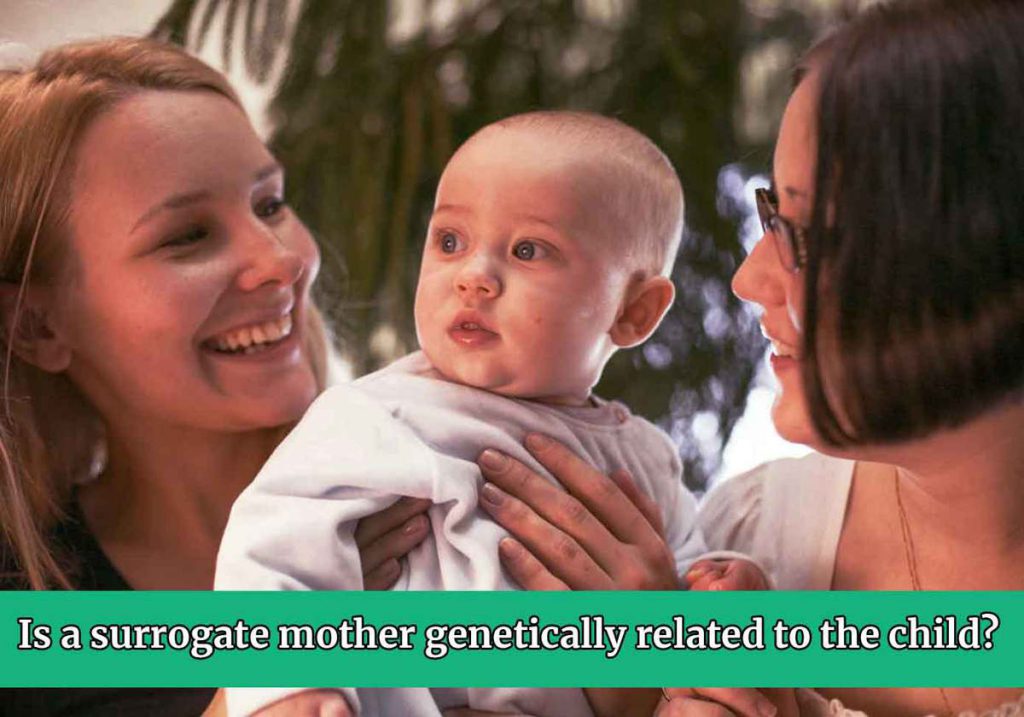

 Traditional surrogate and gestational surrogate are two terms that represent a woman who chooses to carry a fetus for those who cannot go through pregnancy due to different reasons. However, there is a difference in the meaning of these terms. A traditional surrogate uses her own egg to be fertilized with sperm and then she gets artificially pregnant through IVF or IUI methods. But in gestational surrogacy, the surrogate does not use her own eggs and she is merely the carrier of the fetus. Some surrogate mothers are among family members like sisters or cousins that are asked to be the gestational carrier or traditional surrogate of the baby. This kind of arrangement is mostly altruistic and the surrogate undergoes pregnancy to help the intended parents. In this type, since the surrogate mother is a family member, she may also provide eggs to make a baby who looks like the intended parents. Nevertheless, traditional surrogacy needs to be deeply evaluated because it has the potential of raising conflicts between the biological mother and the intended mother. In general, traditional surrogacy is a complicated process with several benefits and drawbacks that should all be considered before deciding to do it. We explain some of the most common pros and cons of traditional surrogacy below.
Traditional surrogate and gestational surrogate are two terms that represent a woman who chooses to carry a fetus for those who cannot go through pregnancy due to different reasons. However, there is a difference in the meaning of these terms. A traditional surrogate uses her own egg to be fertilized with sperm and then she gets artificially pregnant through IVF or IUI methods. But in gestational surrogacy, the surrogate does not use her own eggs and she is merely the carrier of the fetus. Some surrogate mothers are among family members like sisters or cousins that are asked to be the gestational carrier or traditional surrogate of the baby. This kind of arrangement is mostly altruistic and the surrogate undergoes pregnancy to help the intended parents. In this type, since the surrogate mother is a family member, she may also provide eggs to make a baby who looks like the intended parents. Nevertheless, traditional surrogacy needs to be deeply evaluated because it has the potential of raising conflicts between the biological mother and the intended mother. In general, traditional surrogacy is a complicated process with several benefits and drawbacks that should all be considered before deciding to do it. We explain some of the most common pros and cons of traditional surrogacy below.
 In gestational surrogacy, the embryos are made by insemination of eggs and sperm of the intended parents through in vitro fertilization (IVF) cycle in a laboratory. In some cases, donor eggs or donor sperm might be used. Then the best quality embryo(s) is transferred to the surrogate mother’s uterus for growing. In this type of surrogacy, the gestational carrier does not share her DNA with the fetus, she only carries the baby until the pregnancy comes to a full term. However, in traditional type of surrogacy, embryos are made with the insemination of surrogate’s egg and father’s sperm. In this case, since the surrogate provides the egg, she is the biological mother of the baby. Therefore, the surrogate is genetically related to the child.
In gestational surrogacy, the embryos are made by insemination of eggs and sperm of the intended parents through in vitro fertilization (IVF) cycle in a laboratory. In some cases, donor eggs or donor sperm might be used. Then the best quality embryo(s) is transferred to the surrogate mother’s uterus for growing. In this type of surrogacy, the gestational carrier does not share her DNA with the fetus, she only carries the baby until the pregnancy comes to a full term. However, in traditional type of surrogacy, embryos are made with the insemination of surrogate’s egg and father’s sperm. In this case, since the surrogate provides the egg, she is the biological mother of the baby. Therefore, the surrogate is genetically related to the child.
Communication ways:
call us: +98 912 098 5010
Visit us:
No.2, First 8 meter alley, Nobovvat sq., Tehran, Iran
Mail us: [email protected]

Comments & Questions